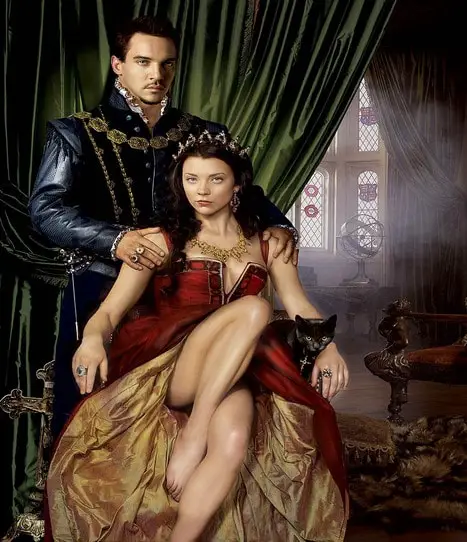Did Anne Boleyn Change History?

 Anne Boleyn has fascinated the masses for close to five hundred years. In her short life, she captured the heart of a king, helped to bring about great religious reform, and died an innocent woman, the victim of the charms that gave her the key to the crown in the first place. Even today she remains a controversial figure, shrouded in myth, rumor and infamy. However infamous her ten year hold over England was, there’s no doubt that she made an impact on history.
Anne Boleyn has fascinated the masses for close to five hundred years. In her short life, she captured the heart of a king, helped to bring about great religious reform, and died an innocent woman, the victim of the charms that gave her the key to the crown in the first place. Even today she remains a controversial figure, shrouded in myth, rumor and infamy. However infamous her ten year hold over England was, there’s no doubt that she made an impact on history.
When Anne caught Henry’s eye, women were wives and mothers, expected to run their households and look to their husbands as their lord and masters. Attractive women could use their looks to procure a better marriage, and if a woman were to take the interest of the King, she was to do as he asked and submit to him totally. After all, he was the king. Anne turned all of these notions upside down. After the king took a part in breaking up her engagement and began to fully pursue her, she refused to become Henry’s mistress and did things on her terms. She refused to be his mistress and kept him at arm’s length until he agreed to make her his wife. Anne sent him her answer in the form of a gift, a small ship with a woman on board. Then, after Anne agreed to marry him, he applied for a dispensation and began a journey that would change religion in England forever. When she and Henry were married, she chose her own ladies and ran her household strictly, encouraging them to read the bible and to avoid engaging in lewd behavior. During the time when Henry was still besotted with Anne, Anne was able to speak freely and enjoy the things she liked without seriously worrying about Henry’s anger. Although she later fell from grace, she still was an incredible step forward for women in history. Her wit, intelligence, and charm paved the way for her daughter, Elizabeth, to become one of England’s most beloved and celebrated monarchs. Anne’s insistence on deciding on and living her own life changed history and feminism forever, and showed women that they had far more power than they may have ever realized before.
Anne also played a part in the English Reformation. Not only did Henry’s love for her influence him to break with the Pope, but Anne was a quiet champion of reform. While she still believed in the ability of good works to secure a place in heaven and never denied transubstantiation, she influenced Henry to appoint reforming bishops and kept a copy of a bible for her ladies that Henry had banned because the prologues were Lutheran. Anne also helped to restore Richard Herman, who had been exiled, and gave aid to others who had fallen out of society because of their religious beliefs. While it may be farfetched to believe that Anne could’ve eventually become a Protestant, she read about and embraced certain parts of reform when she could’ve easily been executed for heresy. She also made it easier for others to work towards the Reformation during her reign. If it weren’t for Anne, it’s entirely possible that England would still be a Catholic nation today. Her insistence on a marriage to Henry and her support of the English Reformation changed religion and the monarchy’s ties to religion then and now.
Anne’s execution in 1536 also showed Henry just how much power he had. While Anne was filling his head with ideas about his power and the good and bad things it could do, she unwittingly stroked his ego and made him realize later that it wouldn’t be so hard to be rid of a second wife. The divorce from Catherine of Aragon took years and left England when Henry decided to make himself the head of the Church, Anne’s road from downfall to execution took less than six months. After her miscarriage and the rise of Jane Seymour, it took no time at all for Henry and Thomas Cromwell to bring forward charges and take Henry’s power to a new high. After Anne’s death, Henry annulled one marriage, beheaded another wife, and nearly had a third arrested on charges of heresy. He had learned that he could have whatever he wanted and that his personal consequences would be little to none. I believe that Henry’s path to tyranny started when Henry decided to throw Catherine of Aragon over for Anne and grew stronger still when Henry had his second wife murdered. Thanks to Anne’s influence, he knew that he had the power to behead or dispatch anyone of his choosing, and he chose to do both of these things many times throughout the rest of his life. Here, Anne changed history by unleashing the image of Henry the VIII that is most commonly pictured today: a powerful, overbearing tyrant.
Overall, I believe that Anne Boleyn definitely changed history, with some things being for the worse but most for the better. She changed the way that women take power and deal with men, helped Henry to break with the church and helped with the English reformation, gave birth to one of the first female monarchs, and showed Henry how much power he had and what he could do with it. She was an elusive, intelligent, powerful woman who knew what she wanted, learned how to get it, and changed both history and the world for good.
by Carrie Parker
Sources
“The Life and Death of Anne Boleyn” by Eric Ives
“Divorced, Beheaded, Survived” by Karen Lindsay
“The Six Wives of Henry VIII” by Alison Weir